How to diagnose issues in your Cloud & IT Infrastructure team
An IT solution provider business’ success is built on the strength of its team. Undoubtedly the one factor that will yield the greatest results is the engagement of your employees. A happy, well-functioning team increases your enterprise efficiency, pushing your business toward its goals in a timely, money-efficient manner. If your team isn’t running at full power, it can be difficult to diagnose the problem. But help is just around the corner! Here are some questions you can ask to diagnose issues in your team.
How to diagnose issues in your team?
- Are your team’s goals aligned?
- Do your team members understand their responsibilities?
- Are processes standing in the way of team success?
- Does your team trust each other?
- How is your team’s communication?
- Avoid the gossip
- Are your team members self-oriented?
- How do you fix issues in your team?
- Are your team’s goals aligned?
Without goals your business is like a ship with no captain. Without a set direction, the ship’s course is left to the crew, a group of autonomous individuals with their own ideas and desires.
In order to reach the business’ intended destination, every member of the team need to share a set of aligned goals.
Does every individual on your team know and understand the shared business goals, and can they articulate those? It’s crucial that the shared goals of the team align with those of the business; the crew could all agree on the direction they’re heading, but if that destination isn’t where you want then they won’t deliver in the way you need.
Even if goals are understood and aligned, it’s crucial that your team members are committed in their direction. Without commitment your business goals are just points on a map with no sense of how you’re going to get there or the intent to push on towards the destination.
Ask your team members what they believe the purpose and goal of the team is, and if they believe the team is aligned to those goals. If the answers are varied, you know the team is unaligned.
- Do your team members understand their responsibilities?
For a team to function well, every individual must understand their responsibilities and roles. Back on the ship, if they don’t understand what they need to do individually, the team won’t function as a unit and the boat isn’t going anywhere fast. To be responsive and efficient in the IT solutions provider sector, your team needs to understand their roles to fulfil the needs of the business and achieve the shared goals.
To find out more about your teams understanding of their roles and responsibilities, it can be as simple as having a quick chat with them. You can ask about both their individual responsibilities and their opinion of their colleagues’ understanding of theirs. A strong response will show a thorough understanding of their own role and that they are aware of others in the team.
These questions may also highlight holes in the team’s coverage of responsibilities and roles, and help to influence your hiring strategy moving forward, and the candidate searches you will work with your specialist recruitment consultancy.
- Are processes standing in the way of team success?
A clear, organised structure of procedures and processes helps to ensure your effort is spread smoothly, taking time away from administration and people-management and leaving more for your team members to do the work they need to do.
Process can include communication, problem solving, conflict resolution, decision making and how your team approach obstacles. Without shared goals and an understanding of their role responsibilities, a conflict can derail the team from its intended function, decreasing its effectiveness and wasting business time and money. It also affects the morale and engagement of the team, further degrading its ability to perform.
The best way to diagnose issues with your team processes is to watch them in action.
Does your team have clear, actionable processes in place for when things go wrong?
Can your team effectively create new processes for situations which don’t fall into the norm?
By answering those questions, you can quickly spot flaws in the system.
- Does your team trust each other?
The question of trust is an interesting one.
It encapsulates far more than just a simple feeling.
The idea of trust brings into discussion a greater conversation on the interpersonal relationships present within the team. A diverse team of individuals who share the same business-oriented goals and understand their roles within a strong process-driven structure allows your people to trust each other.
Issues arise when trust isn’t present in the team. Without trust, not only do colleagues become islands working individually away from their shared goals but they also subsequently spend more time worrying and complaining about other people’s contributions.
So how to diagnose trust? Well on top of observing the team, you can ask them how they see their relationships are holding up, and areas they see as problematic.
- How is your team’s communication?
The single most influential factor in the effectiveness of a team and its output is communication.
Without extensive and broad communication, a team cannot function to its fullest potential, so reducing productivity and wasting time, money and well-being.
When looking at communication in your teams, you want to rate the energy, engagement and exploration. How many communications between team members, the distribution of communications across the team and the extent of communication outside of the team to solve problems and resolve conflict. In doing this, you gain a high-level view of communication flows within the team and so can spot areas of weakness.
Through observation and talking to team members, you can quickly gain valuable insights to show you where improvements can be made. Improvements in communication mean improvement in productivity.
- Avoid the gossip
An obvious indicator of issues is a rising prevalence of gossip amongst team members.
It can be hard to see this initially, leaving you relying on ‘the grapevine’ for any possible signs of disruption in your teams.
If you’re lucky enough to be heading up the team in question, it can be easier to spot contentious issues as they arise.
Team members talking about each other behind their backs will obviously cause divisions between your colleagues.
Finding strategies to increase honest communication between team members is a great way of driving down gossip and so in turn increase productivity.
- Are your team members self-oriented?
An important aspect of a team is its ability to work collectively toward a shared goal.
If these shared goals are aligned with business plans, along with an effective talent-base, you’ve got a recipe for continued productive success.
If individuals in your team are self-oriented, however, these plans can be derailed.
Are they working for themselves? Do their goals really align with the team? Are they only interested in hitting individual goals and targets and are not concerned with the overall output of the team?
By answering those questions, you can understand where problem areas of your team lie.
A self-oriented team member is not an effective team member.
- How do you fix issues in your team?
Much like any kind of diagnosis, discovering an issue is only half of the solution.
What you do next to resolve the problem is the most important factor in taking your team to the next step.
There are numerous ways of fixing issues in teams; talking, implementing new processes, employee engagement strategies etc.
There is no one size fits all solution to fixing team issues, but what is clear is the need to improve communication as much as possible and to give your employees the tools they need to succeed both individually and as part of the team.
In conclusion
Lack of talent, experience and skills in your team can be a key reason for a loss in productivity.
Give the team the skills you need by hiring cloud & IT infrastructure talent through InfraView.
If you’re an IT Solutions Provider looking to grow your teams to meet your business goals and objectives, the best way to achieve your hiring needs is by working with a specialist recruitment consultancy geared towards sourcing the best cloud & IT infrastructure candidates on the market.
Here at InfraView we’re proud to offer bespoke consultancy services to the best managed service & IT solutions providers in the UK.
Find out how we can add instant value to your business.
Arrange a call with our co-founders Tim Davey & Tim Cazemage here










